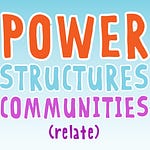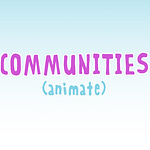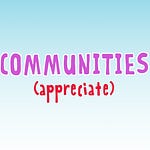Abbie: Hello and welcome to the CosmoParenting Podcast brought to you by the CMM Institute for Personal and Social Evolution. In this space, we invite you to see yourself as someone who is curious about and actively participating in creating your own meaning around parenting.
This is our ‘Communicate’ episode, in which the fourth episode of each month we will wrap up our theme by offering some ideas for communicating with your children, co-parents, or whoever else might be a part of your parenting to start having conversations about the things you are learning here. Let’s begin.
*music*
Abbie: Today, I am joined, once again, by Nana Bonsu. Nana is a qualified social worker, family and systemic psychotherapist, and systemic supervisor. Nana is the Director of Relational Practice in Camden. And she's worked in Children's Services for over 20 years. She is also parenting two teenage sons.
Hi, Nana. Thanks so much for being with me again today.
Nana: Hi, Abbie. Thank you for having me back. I'm looking forward to our conversation.
Abbie: Me too. Me too. Now that we are four months into CosmoParenting, I think there's a lot of richness here and lots of things to talk about. So, in the last episode that I did with
she offered us a strategy called ‘Relationship Rewind,’ which I love as someone who's communication-oriented that I think naming things is so important.And so this strategy really offered, not only kids, but also adults and people who are parenting, the opportunity to name: What feels good to you in a relationship?
And then in a kind of reflexive way- Okay, how are you going to recreate that moving forward?
So I just thought that was such a great tool. Nana, I'm curious to know what would you add to the topic of how parents might go about communicating around relationships?
Nana: Yeah, so it was a great episode last time around. And I think that relationships is the way that everything is mediated through. If we think about it- we're in relationships with ourselves, we're in relationships with each other, we're in relationships with our environment.
And these relationships, I think, are the conduit through which all communication takes place. And so I think as a parent, how you are able to name and attend to relationships in a way that you talk about your feelings, you talk about the emotions, you are able to communicate openly and transparently as much as you can- I think it shows really good modelling and good ways of demonstrating to your children that you are able to understand how things are connected together.
So, you recognise that- if I act in a certain way, there will be a reaction to that. If I utter my first speech act in a particular way, there will be a reaction to that.
So, how do you always pay attention to how those things occur in your parenting, I think is so key.
Abbie: Yeah. I think that the whole belief behind this podcast and what we want to say into the world is that our communication creates our social worlds and as a part of that- our relationships. Our communication is creating the quality of the relationship we have. And so something that feels really important to me is how people who are parenting invite their children to co-create the relationship with them. So, I'm curious what you think about that and how you might go about inviting children to co-create the relationship.
Nana: I think that's such a great question because I think what that does is position you- as a parent- to think about how can you be invitational in this moment? and-obviously, depending on the age of the child and their development- how can you invite a child to co-create an experience or a moment with you?
So, inviting a child to comment and to give an opinion, inviting a child to think about options and what option might be the best option and why they might think that. So, that collaborative way of having a conversation with your child as a parent gives them an opportunity to see that they have a part to play and that they are valid in their views as well. And that can happen on a really minuscule level. You know… What should we eat? Where should we go out to eat? Or do you think we should do this on Monday or Tuesday? Or it could be much bigger in thinking about sharing with your children some decisions that might be challenging or difficult.
But if they're old enough to contribute to that, then I think it's worth giving them that validation and that opportunity to do so. Because I think sometimes as parents, you might feel that you have to be the decision maker, the solution maker, the person that holds it all together.
But actually, there's something really powerful in sharing experiences with your children, so that they can see and understand some of the context that you're in.
And they can help with some good decisions, actually, because you'll be surprised that your children may observe and see things that you haven't realised that they're seeing and observing and that they can contribute and give you ideas that you may not have thought of.
So how are you invitational?
How are you enabling a child's voice to be validated?
And in what ways are you doing that so that there are moments that they can join in with your parenting?
It might not be all the time. There'll be some decisions you need to make quite quickly, or there might be some decisions where you want to protect your children from because you don't think it's appropriate for them to know.
But there are many ways I think that you can invite your child's voice into your parenting and help them to co-construct the parenting experience with you.
Abbie: Yeah, I think all of that was very beautifully said. And what I really want to kind of pause on and pull out is this shift that is important to recognize.
And you've named kind of the complexity of it. It's not an either/or kind of situation of, you know, be the decision maker or include your kids in everything. But you are, kind of, asking people who are parenting to really, kind of, look at and maybe deconstruct a story they might have in their head that as the parent, it is their responsibility to make every choice and protect their child and do, you know, do all these things that they might see as being what being a parent means. You know? And that's kind of a taken for granted story.
But you're inviting parents to say: well, what if ‘what it means to be a parent’ is to engage your child in this relational co-creation? And see that as your job as a parent- that you're inviting them in and empowering them in their relationships. It's going to go beyond your relationship with them.
That feels really important. And I'm curious to know beyond parenting, if you have any examples of this in the work you've done in Children's Services, inviting them in that way.
Nana: Yeah, yeah. And I think about being a parent where you teach children through critical moments or teachable moments. And certainly in the services that I work in, there are moments where it might not go particularly well for a young person or a child, or moments where there's a great deal of challenge or difficulty and in that moment- how are you enabling a child to also have a voice so that they can co-construct what needs to happen for them next and what the plan ought to be?
So, there's a strong emphasis in our practice around working with a participatory lens- a strong emphasis of garnering the child's wishes and feelings because they have the right to be heard and they have the right to have autonomy and self-efficacy.
So I think there's something really powerful about a parent being able to model to a child that your voice matters and your opinions are important because that ripple effect, as you described, is showing itself outside of the home.
The more your voice is given space to breathe and for you to hear your voice, the more you're able to think about, as a young person, how you navigate the spaces in the world that you're in. And you understand that there's a negotiation here- you may not get what you think you should get- but somebody was able to discuss with you and look at the parameters around: What would be a good idea? What might not be good? And all of those skills are vital as one grows and develops in the world so I think as a parent your impact develops into, as I said, that rehearsal, that experience.
And that rehearsal and experience becomes more and more affirming. And then it means that you have young people with voices where their voice matters and they're used to being heard and they're used to being taken seriously. And I think that's so crucial, particularly in our time, where there can be so much demands on our time and so much demands on our ability to speak for ourselves because you're hearing the voices of many others and it might be hard for you to know how to bring yourself forward.
So I think parents have a real crucial role, enabling that to happen, as I said, at a very small micro-level, but on a bigger scale, where a child is able to tolerate decision making, is able to have an opinion. And allowing that to be a co-constructed experience, I think is fundamental to parenting.
Abbie: Yeah, Nana, that's great. I think we're really taking ‘everything is related’- what we started with at the beginning of this month- we're really taking that to heart. So, Nana, thanks for joining me again today.
Nana: Thank you for having me.
Abbie: Yeah, we'll hear from you again next month. And to everyone listening, thank you for joining us too. Don't forget to check out www.cosmoactivities.com for our other resources in this series, all of which are available online for free.
And be sure to comment on this podcast episode on the CosmoParenting Substack. We're grateful to be on this journey with you, and we will look forward to joining you next week for the first episode of our Moral Forces theme.
*music*










